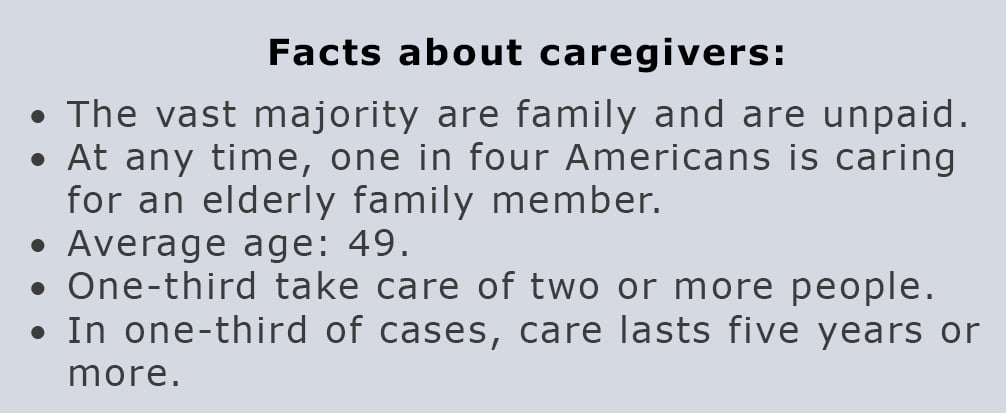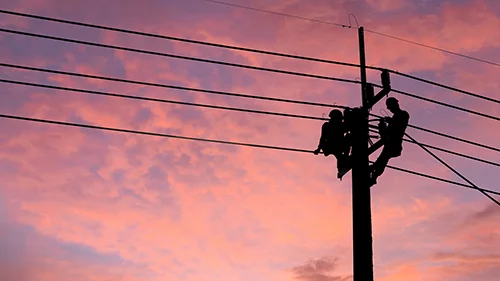
Family Network for Elderly to Dwindle
Husband, wife, grandmother, uncle, elderly friend – we all need a devoted caregiver when we grow old.
But in a not-distant future, according to a new report from the AARP’s Public Policy Institute, the number of family and close friends available to fill this demanding role will decline sharply. It’s unlikely there will be enough of these unpaid caregivers for the multitudes of aging baby boomers.
 Today, there are seven Americans between the ages of 45 and 64 for each individual who is at least 80 years old. The baby boomers, largely because there are so many of them, have done a good job of caring for their parents born during the Depression era. One surprising result has been a steady decline in nursing home occupancy rates.
Today, there are seven Americans between the ages of 45 and 64 for each individual who is at least 80 years old. The baby boomers, largely because there are so many of them, have done a good job of caring for their parents born during the Depression era. One surprising result has been a steady decline in nursing home occupancy rates.
But AARP estimates that the number of folks age 45 to 64 for each individual at least 80 will fall from seven today to six in 2020, four in 2030, and three in 2050. Worse still, not all of them can or will fill the role of caregiver.
“We’re at the demographic sweet spot right now,” said Donald Redfoot, senior strategic policy adviser for the AARP Public Policy Institute. “But as we go forward, all those positive developments over the past 20 years are going to reverse.”
Powerful social forces will strain this shrinking supply of family caregivers, such as the breakdown of extended families, the scattering of children, more childless women, and more working women. Daughters are typically the ones who care for aging parents but more are holding down full-time jobs to support their own households. Complex family structures and step-parent relationships also are changing the dynamics that determine whether someone is willing to provide care.
The future of caregiving in this country, Redfoot said, can only become more tenuous and the stresses on caregivers more intense.
“We may in fact be looking at a crisis at some point,” he concluded.
Comments are closed.







The crisis will not be evenly felt. My parents (pre-boomer) will do fine. But those who chose not to put their children first in young adulthood may find, when they reach old age, that their children share their values.
http://www.r8ny.com/blog/larry_littlefield/generation_greed_and_the_family.html
To the list of issues, consider that each generation starting with the back end of the baby boom has also been poorer than the one before.
And with global warming, the Eskimos will be challenged to find enough ice bergs to dispose of their elderly in the traditional manner.